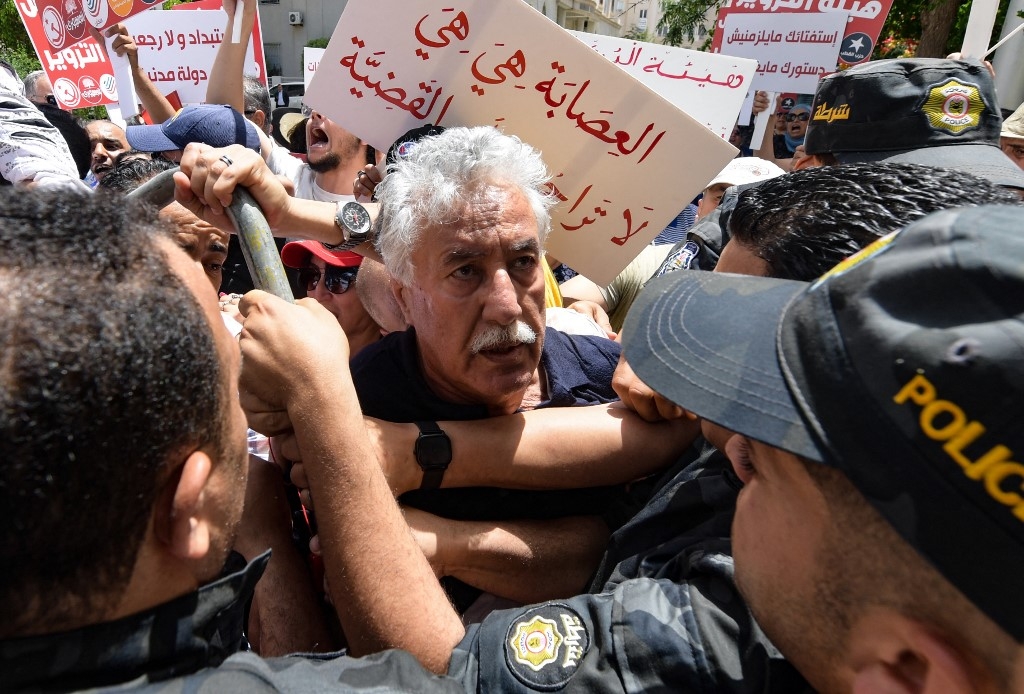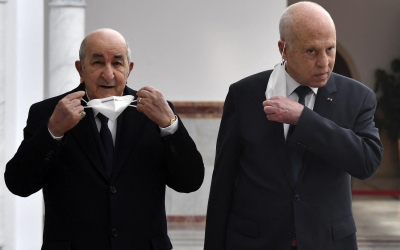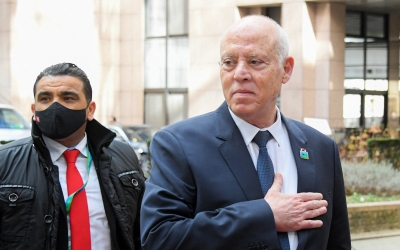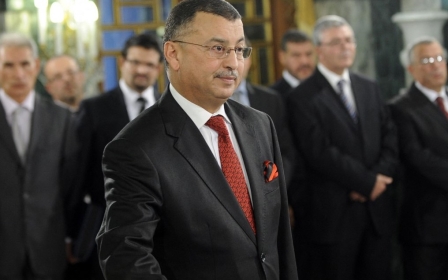Tunisia: Police break up anti-president protest as courts call for strike

Tunisian police used pepper spray on Saturday to disperse protesters against President Kais Saied and a planned July referendum, nearly a year after he seized wide-ranging powers in what opponents decry as a coup.
The police blocked the protesters, who numbered around 100, as they attempted to reach the headquarters of the electoral commission, whose chief Saied replaced last month in a further extension of his control of state institutions.
New MEE newsletter: Jerusalem Dispatch
Sign up to get the latest insights and analysis on Israel-Palestine, alongside Turkey Unpacked and other MEE newsletters
Some at the protest in Tunis, organised by five small political parties, held up placards reading "the president's commission = fraud commission".
"The police... sprayed gas in our faces and attacked us," said Hamma Hammami, head of the Tunisian Workers' Party.
Saied on 25 July sacked the government and suspended parliament, which he later dissolved in moves that sparked fears for the democracy that emerged from the "Arab Spring" uprisings.
He also seized control of the judiciary, and on Thursday summarily sacked 57 judges, accusing them of corruption and other crimes.
Judges strike
On Saturday, the Tunisian bar association announced a national strike in "all criminal, administrative and financial courts" for a renewable period of a week, starting on 6 June.
Dozens of judges present at an emergency meeting in Tunis "strongly condemn the president's continued interference in the judiciary," they said in a statement.
They accused Saied of giving himself powers to lay off judges "without the slightest recourse to disciplinary procedures, violating the most basic right to defence as guaranteed in the constitution".
Saied has laid out plans for a referendum next month on a replacement of the 2014 constitution that had enshrined a mixed parliamentary-presidential system often plagued by deadlock and nepotism.
The draft of the new constitution, which is to be put to the public in a simple yes/no vote, has not yet been published.
One placard at Saturday's protest read: "I don't need your referendum and I don't care about your constitution."
On 22 April, Saied gave himself powers to appoint three of the seven members of the electoral commission, including the president.
Then last month he replaced commission chief Nabil Baffoun, a critic of his July power grab, appointing former commission member Farouk Bouasker to the position.
Saturday also marked the start of a national dialogue organised by Saied but boycotted by opponents, including the powerful UGTT trade union confederation, on the grounds that it excludes key civil society actors and political parties.
Saied's opponents accuse him of moving towards an autocracy.
Some Tunisians however support his moves against a system they say achieved little in the decade since the 2011 revolt that toppled dictator Zine El Abidine Ben Ali.
Middle East Eye delivers independent and unrivalled coverage and analysis of the Middle East, North Africa and beyond. To learn more about republishing this content and the associated fees, please fill out this form. More about MEE can be found here.






